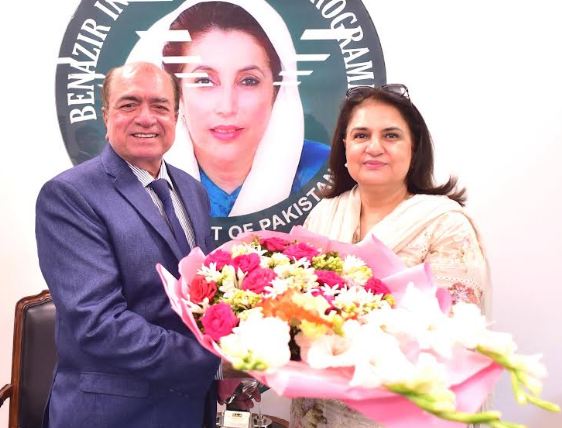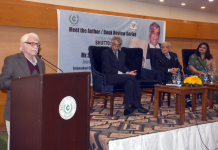ISLAMABAD, JUL 30 /DNA/ – “The Benazir Income Support Programme (BISP) is not just a financial lifeline—it is a transformative initiative that restores dignity, builds resilience, and empowers the most marginalized women in Pakistan,” said Senator Rubina Khalid, Chairperson of BISP, during a meeting with Munir Ahmed, Executive Director of Development Communications Network (Devcom-Pakistan) and a leading voice in climate advocacy and environmental diplomacy. Munir Ahmed called on the Senator Robina Khalid to congratulate on her historic third consecutive term in the Senate.
Senator Rubina Khalid briefed Mr. Ahmed on BISP’s progress and the positive impact of its initiatives across Pakistan. She underscored the programme’s commitment to expand its outreach, especially in underserved and climate-vulnerable areas, by strengthening transparency, innovation, and inclusion.
Recognizing her re-election as a significant milestone, Munir Ahmed, a seasoned climate communication specialist with over two decades of experience in environmental policy advocacy, praised Senator Khalid’s dynamic leadership and BISP’s critical role in grassroots development.
The future of social protection lies in its ability to evolve with the challenges of our time—especially climate change,” said Munir Ahmed. As Pakistan grapples with recurring climate shocks, it is essential to integrate climate resilience into the social safety net. By empowering communities through locally-led adaptation strategies, we can reduce environmental risks, improve community health, and build sustainable livelihoods.”
He proposed the initiation of community-based climate resilience projects in partnership with BISP, focusing on nature-based solutions, climate-smart agriculture, water and sanitation improvements, and women-led green micro-enterprises. These initiatives, he said, could strengthen the economic and ecological resilience of vulnerable households, especially in areas most affected by floods, droughts, and glacial melt.
Both leaders agreed that there is a strong synergy between social protection and climate adaptation goals, and that collaborative efforts between public programmes like BISP and civil society actors like Devcom-Pakistan can significantly enhance community well-being and national resilience.
The meeting concluded with a commitment to continue dialogue and explore institutional pathways for integrating environmental sustainability into Pakistan’s social protection architecture.

















